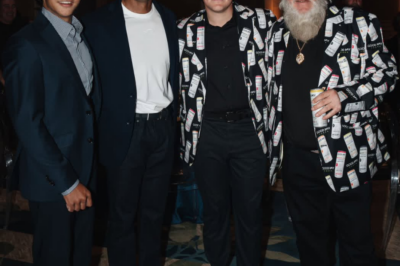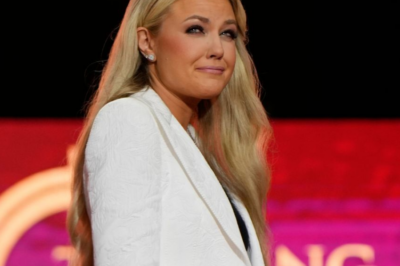First Openly Gay Country Artist Opens Up on How Much Nashville Has Changed Over The Years
:max_bytes(150000):strip_icc():focal(665x0:667x2)/620492-2000-8a1cb8fe7e044aa5a6c5bcf1b7994235.jpg)
Nashville is still an industry in desperate need of change. Country artists are still wildly thorny towards “outsiders” that aren’t “real country.” Not to mention the artists that are actively problematic politically or just in plainly saying slurs. It’s a weird genre in that sense. A similar idea applies to LGBTQ+ artists. Naturally, with the state of conservatism, being gay isn’t exactly welcomed with open arms.
That’s why it was courageous for Chely Wright to break the boundaries down and come out as gay back in 2010. Now, we have artists like Maren Morris and Orville Peck that can live in their truth a little more comfortably than they could’ve in the past. But as much as things change, the more they can stay the same in country. Chely Wright is opening up about this reality, reflecting on all of the changes in Nashville and even how things have stayed the same in its culture.
Recently, Wright spoke with PEOPLE about coming out 15 years ago. There, she opens up about how it would inevitably upset some in Nashville. “When I came out, I went around the industry. Not to spite anyone, but because I knew it was such a revolutionary notion to own it,” Chely says.
Chely Wright Opens Up About Nashville and Its Relationship With The LGBTQ+ Community
“Control my narrative, be strategic about how I came out, be thoughtful about not just coming out, but coming out well because I needed to take the story to the people, to the fans. There was no gatekeeper in Nashville that was going to say, ‘Let’s do this. Let’s tell this story.’ So I went around what I knew to be the infrastructure, and I broke some rules,” she continues.
Ultimately, the country industry “is more welcoming as a whole than most might think, and not as advanced and evolved as many who might think,” as Chely puts it. However, it’s all about who has the power. When ignorant, bigoted people wield it, you’ll get negative results. Being able to diagnose this inevitably helps people ready to come out in Nashville.
“if you drill down on the not as evolved as many might want to believe, pay attention to how adjacent they are to power. The closer to the power center you are, the less likely you will acknowledge that the systems and the norms and the structures within that entity,” Wright says of Nashville. “The less likely you are to admit there’s a problem, because if you do, and if you are adjacent to power, then you have to do something. And you also have to acknowledge that you’ve benefited from a system or institution that is unfair. Then it makes you self-reflective about your position. And it’s really hard for people to acknowledge privilege.”
News
Brandel Chamblee calls for Koepka’s PGA Tour return after LIV Golf exit
Brandel Chamblee has responded to news that Brooks Koepka has quit LIV Golf. A statement issued by LIV Golf this…
John Daly wants to share Ryder Cup captaincy with Tiger Woods
John Daly wants to share Ryder Cup captaincy with Tiger Woods. Yes, really. Who is the only eligible multiple major…
Complete shock!!! Erika Kirk Caught Lying About Dating History
Erika Kirk recently made an appearance on CBS News. While there was plenty for the internet to chew over, one particular…
‘Give Me Money,’ Says Elon Musk As He’s Asked How To Start With $1,000 — Even As He Warns It Would Take ‘Armageddon’ For Him To Be Broke
A blunt response about starting over with $1,000 drew attention after a billionaire said the most realistic move would be…
Has Elon Musk’s dream of the Moon been shattered?
Following a series of incidents involving SpaceX rockets, Elon Musk’s role in the goal of returning humanity to the Moon…
How Elon Musk and Mark Zuckerberg got rich without paying taxes, leaving a legacy for their children and grandchildren: Receiving a $1 salary, possessing ‘paper’ assets, and borrowing heavily to spend.
Why do workers bear the heaviest taxes in the US, while billionaires get richer through strategies like “Buy-Lend-Die”? In Meta’s…
End of content
No more pages to load












